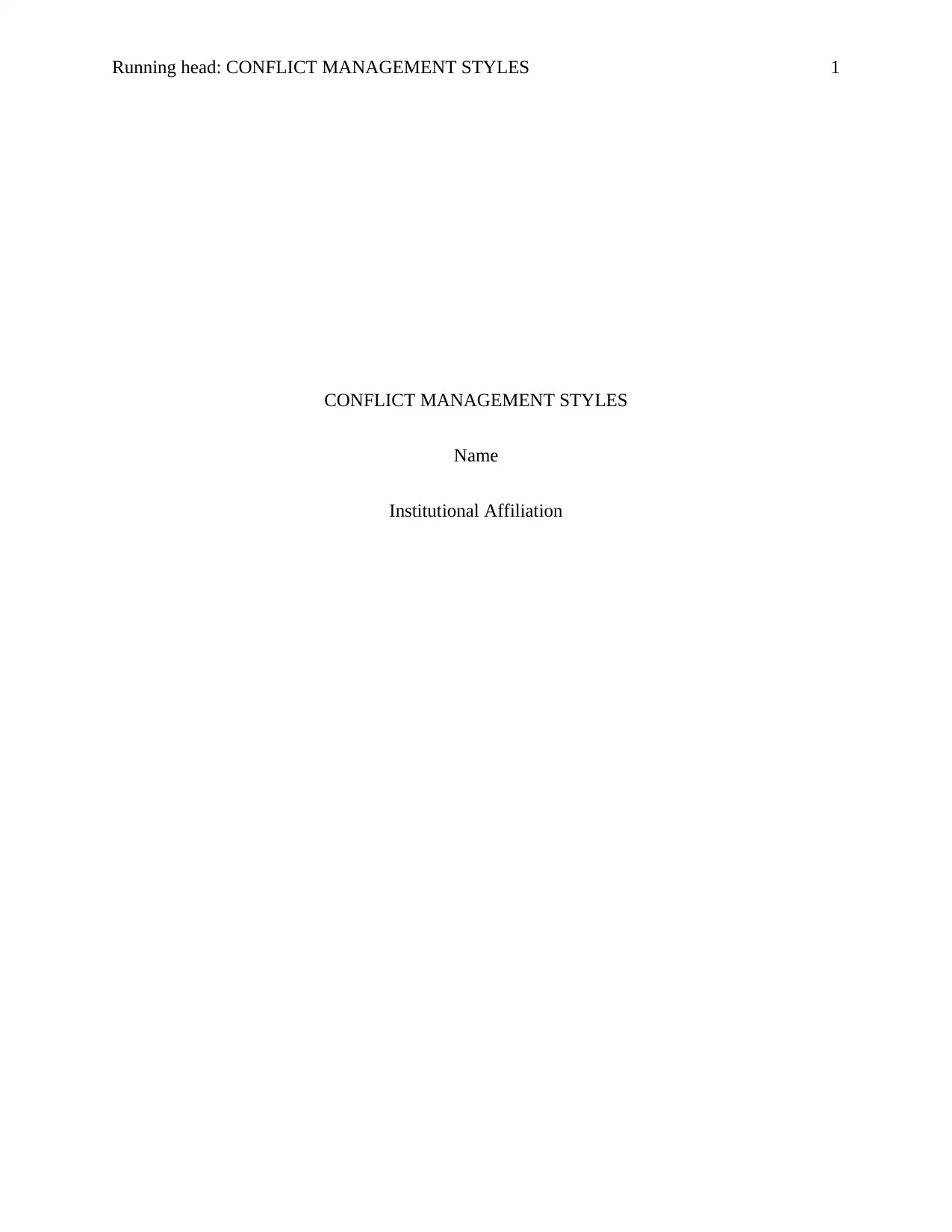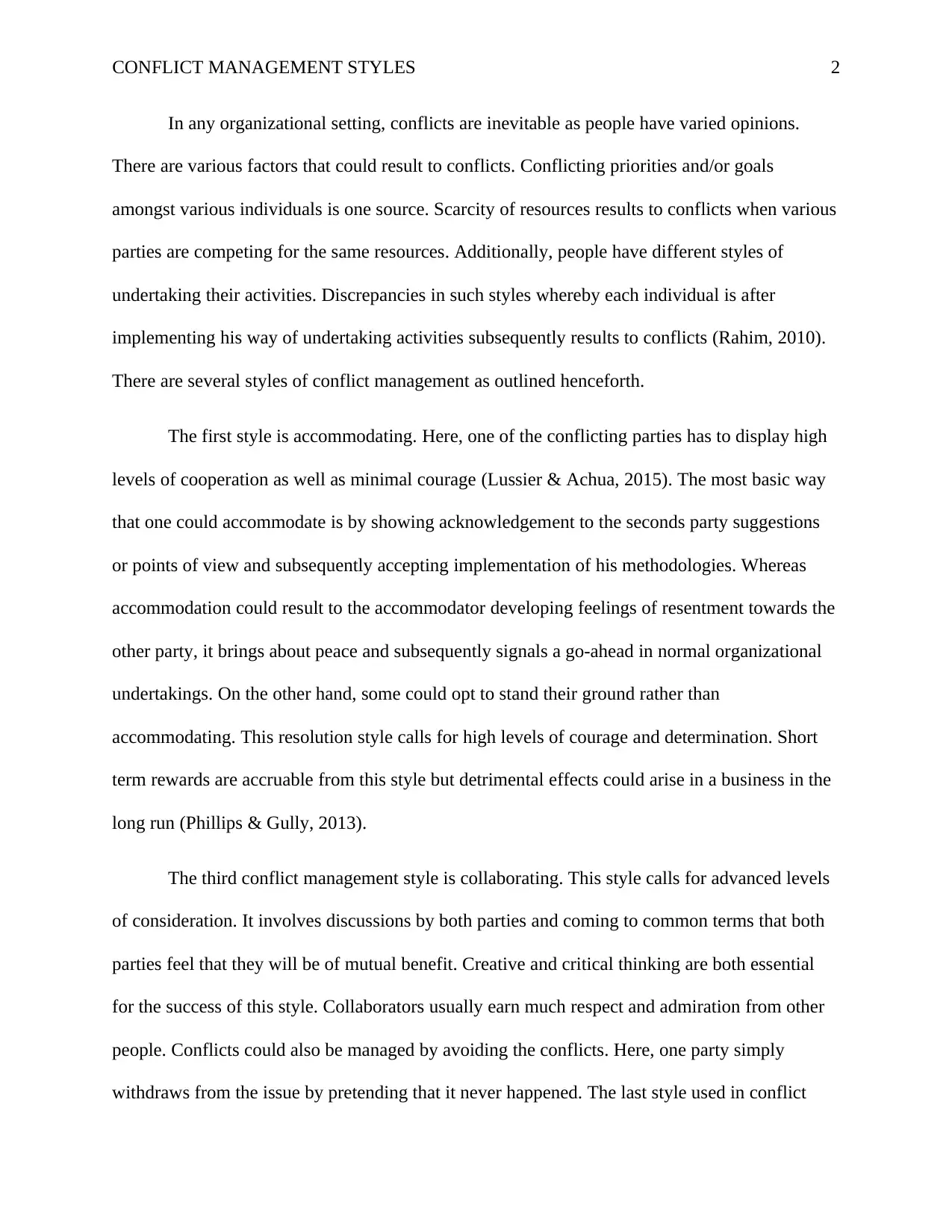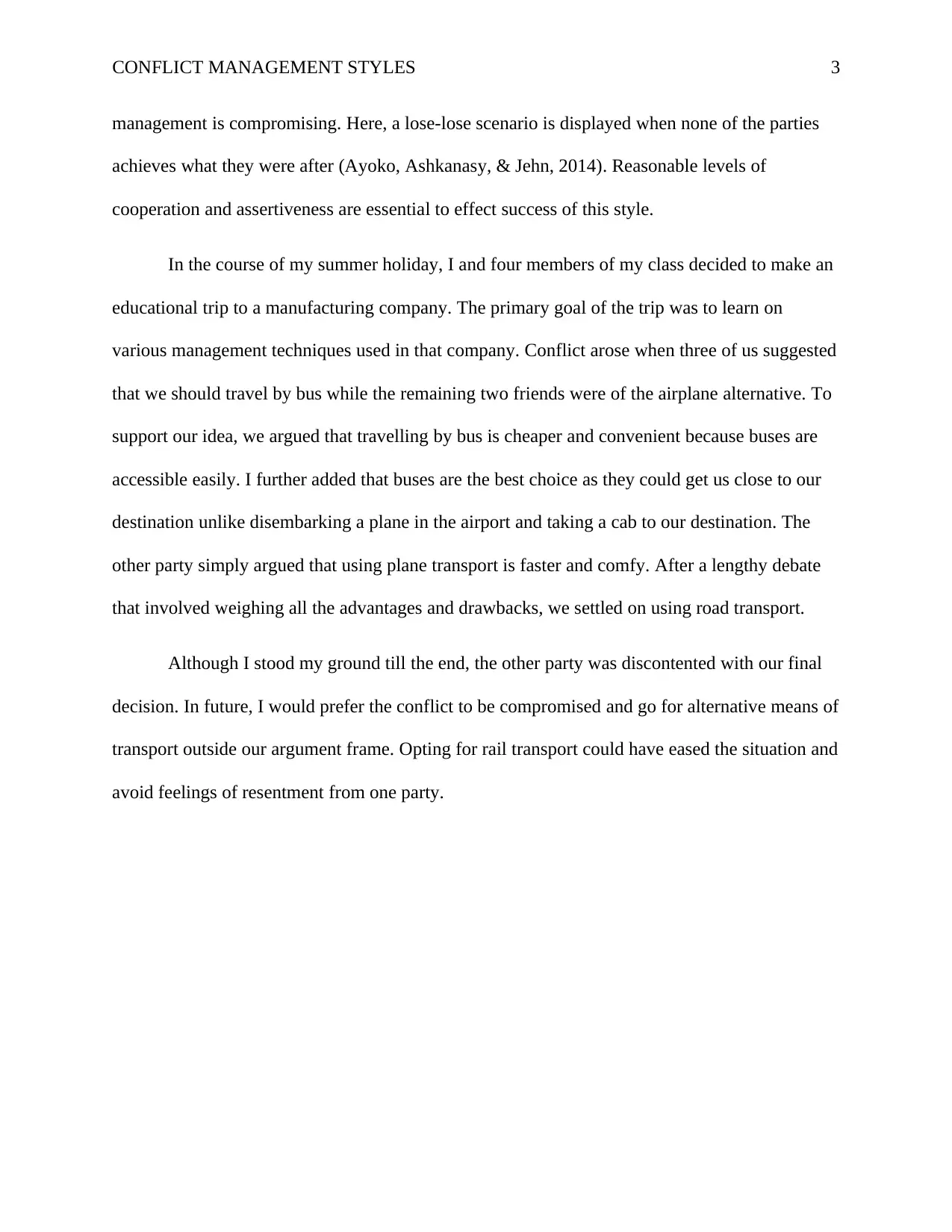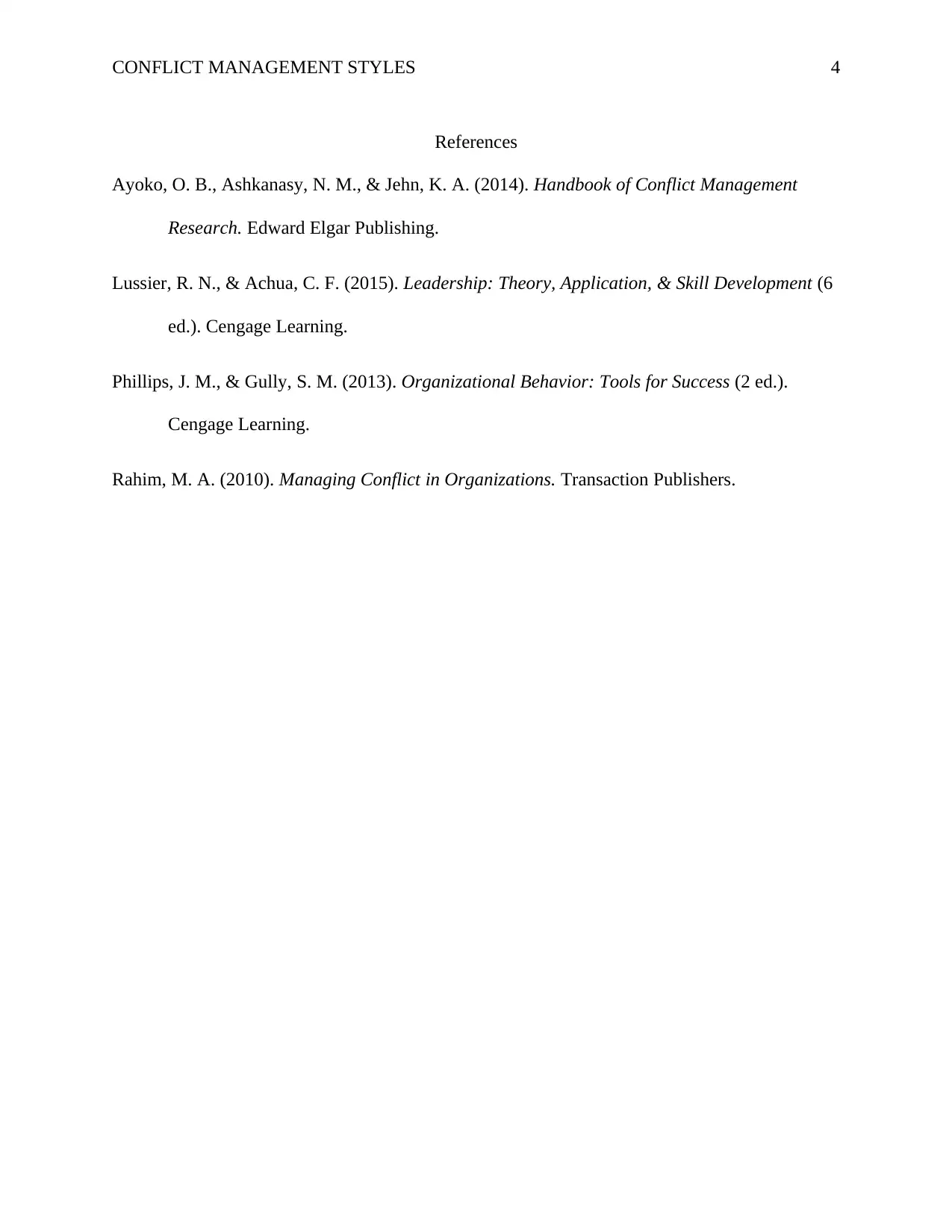Conflict Management Styles: Analysis, Reflection, and Application
VerifiedAdded on 2023/06/10
|4
|739
|115
Essay
AI Summary
This essay explores various conflict management styles within organizational settings, including accommodating, standing ground, collaborating, avoiding, and compromising. It highlights the inevitability of conflicts due to differing opinions, conflicting priorities, resource scarcity, and variations in work styles. The essay also includes a personal reflection on a conflict experienced during an educational trip, where a disagreement arose over the mode of transportation. The author reflects on the chosen resolution method and suggests a better approach for future conflicts, emphasizing the importance of compromise to avoid resentment. The document is available on Desklib, a platform offering a range of AI-based study tools and solved assignments for students.
1 out of 4





![[object Object]](/_next/static/media/star-bottom.7253800d.svg)